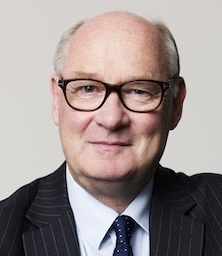By Mark McSherry
Abrdn chairman Douglas Flint said a debt default by the United States “is almost unthinkable” and would be a “cataclysmic” event for global markets.
US president Joe Biden and lawmakers have agreed to further talks aimed at breaking the deadlock over raising the massive $31.4 trillion US debt limit — with just three weeks left before the country may be forced into an unprecedented default.
Edinburgh-based Abrdn manages about £500 billion in global assets.
Flint was asked after the firm’s AGM in Edinburgh if Abrdn, as a large investor, is worried about a potential US default and the political standoff over the debt ceiling.
Flint replied: “It is almost unthinkable … a US default would be cataclysmic.
“But at the same time you have to say, giving Congress the ability to hold the administration to ransom every time you come up against the ceiling is not a good form of government.
” But … increasing debt all the time just because you need to borrow more is not good either …
” … if the music were to stop, the debt pile is huge, so, yes I do worry about this sort of theatre that goes on all the time, because if the risk free rate changes it reprices everything in the world, so yes you have to be concerned about it …”
During the AGM, Abrdn CEO Stephen Bird told shareholders the company will continue to look at “inorganic, bolt-on acquisitions.”
Asked after the meeting if he saw a return of major mergers between asset managers and whether Abrdn would be a part of that, Flint said: “I think there will be consolidation … we have done a big merger, before my time … and I think we learned a lot from that … I’m not sure you would rush to do it again …
“Because you are merging people … it’s a complicated thing to do …
“I think the future is more in … getting close to the consumer … most of these mergers in the past have been about institutional facing businesses rather than retail facing businesses …”
Asked how Abrdn’s relationship with Phoenix — owner of the “old” Standard Life — develops in the future, Flint said: “It depends on how they set their asset allocation policy …
“… more and more business is moving to passive … the way people think about investing is changing …
“If we can cooperate together to mutual advantage, we will …”
